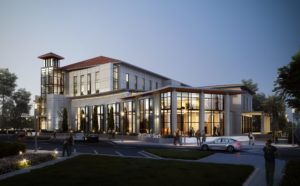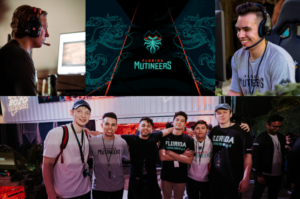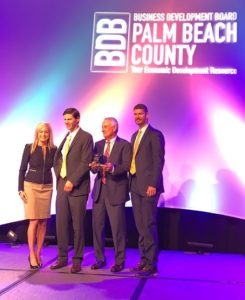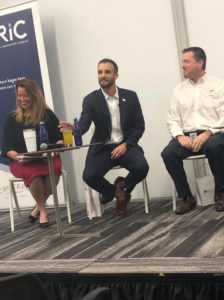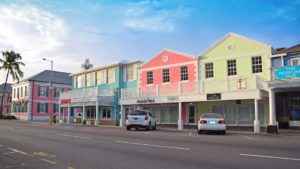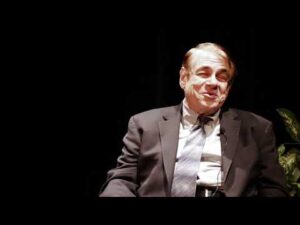
The wonderful Randy DelLago is a local example of how the arts touches generations.
About a month ago, the arts community was shocked when Gov. Ron DeSantis vetoed $32 million in grants designed to support 663 cultural organizations in Florida.
The move was unexpected—at least by the arts community. With the stroke of a pen, Florida went from near the top of states to the bottom in terms of support for the arts.
In hindsight, maybe the veto shouldn’t have been surprising. Maybe, it’s time to listen and yes believe what some politicians say. That sentence sounds counterintuitive since trusting politicians is not something we are used to, but Gov. DeSantis did recommend $0 for the arts when he released his budget in December 2023.
But the arts community thought the “normal process” would restore funds. They were wrong.
When the veto was announced, I fielded a call from a wonderful journalist named Sharon Geltner who was writing an article for the Palm Beach Arts Paper about the cuts. Sharon wrote a great article about the issue that I recommend you read. Here’s a link: https://palmbeachartspaper.com/desantis-cuts-all-arts-and-culture-funding-in-florida-leaving-pb-county-in-shock/
I don’t want to write another piece about the cuts and the toxic politics that are driving things these days. I do want to go on record about the value of the arts.
In Sharon’s article, I talked about the arts as an economic driver and noted that with all the companies relocating to Palm Beach County there would be a need for a robust cultural scene. If we aspire to be a world class community—and I hope we do—we can’t be, if we don’t have world class cultural opportunities. The people who live here deserve it, the people who are coming here are going to demand it.
That’s why I am keeping a close eye on The Center for Arts & Innovation slated for Mizner Park in Boca Raton.
Over the past few years, I’ve had numerous conversations with founder Andrea Virgin and her vision is ambitious and compelling. I’m rooting for her. While the project has been billed as the new cultural hub for Boca, the Center’s impact transcends city borders. If the Center succeeds it will have regional impact and could even be known internationally. It’s something worth rooting for.
For the record, the arts in Florida is big business–$39 billion in Florida and $335 million in Palm Beach County.
But there are intangibles as well.
And that’s what I’ve been thinking about these days.
I believe the arts are what make us human. I believe the arts create empathy and we need more empathy in our world.
It’s art that endures. We will be talking about The Beatles, Shakespeare, Van Gogh, Dylan and Michelangelo as long as we walk the Earth.
In these divisive and dangerous times, it’s the arts that bring us together. We can all appreciate a great Chris Stapleton song, right?
And let’s not discount the empathy piece; cynics may refer to empathy as hokum, psychobabble or even hooey (I’ve always wanted to use the word hooey in a sentence, cross one off the bucket list).
But I’m going to posit that empathy is everything. If we sympathize and understand others, we have a chance to connect, we have a shot at progress.
If we see a play, watch a movie, read a book, listen to music, or visit an art museum we open ourselves to the possibility of seeing other perspectives and learning about new worlds.
New vistas shift our molecules and that’s a good thing.
To think the arts are just “fluff”, “extras” and something you fund only if your flush—well I don’t think so.
Yet, when we think of arts funding or arts education it’s often in the vein of being secondary to the “more important” stuff. What if there is nothing more important? What if it’s all important and we are challenged to find a way to teach trigonometry and music?
If you don’t think art can change the world well then… you’ve never heard the sax solo in “Jungleland”, you’ve never experienced the magic of the Crest Theatre when local musicians re-enacted “The Last Waltz” and you never walked among the plein air artists camped out on Atlantic Avenue and talked to them about what they see when they look at sights we pass every day.
Art matters. Art is the highest form of hope.
Speaking of the arts….we lost a local arts legend last week.
Randolph DelLago, who spent more than 40 years delighting audiences as the artistic director at the Delray Beach Playhouse passed away. He was 77.
Randy was a larger-than-life person. A wonderful entertainer with a booming voice and a style all his own.
After his long stint at the Delray Playhouse, Randy joined the Wick Theatre in Boca last year.
He was a theater legend, a true pillar who touched generations of performers who took to social media last week to share their appreciation.
He was also the man who gave me my first and only stage role, a walk-on role in “Scrooge” at the Delray Playhouse years ago. I played the mayor who walks across the stage and encounters Scrooge who fell on the ice. Mr. Scrooge extends his hand so I can pull him to his feet. I think about helping him, then walk past. It got a big cheer and I immediately retired. Best to go out on top, I figured.
Mr. DelLago will be missed. But his impact will live on.
Delray lost another legend with the passing of Dr. Lynda Hunter, the long time children’s librarian who retired in 2016.
For 31 glorious years, Lynda enchanted children with her storytelling and encouragement to read. My kids benefitted from Lynda’s magic and both became voracious readers, a habit that has lasted throughout their lives.
I adored Lynda. She helped when I was mayor and we launched a “Get Caught Reading” program. Her enthusiasm for books was unrivaled. Her love of children boundless.
In a social media post, the Delray Library summed up her legacy beautifully describing how generations of children flocked to her. The post described her warmth as a lasting legacy.
How true, how beautiful. Dr. Hunter was one of a kind. She will be sorely missed and always remembered.
